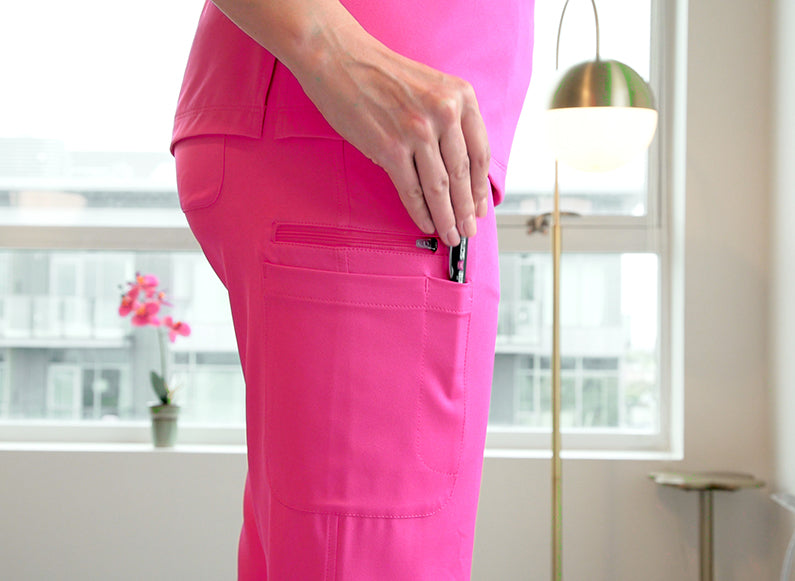Poor Bedside Manner: What Causes It and How to Heal From It
Nurses have been rated the most trusted profession for the past 19 years, winning the most recent poll with a sweeping 85% of the votes. Doctors trailed behind at 70% even though they work closely with nurses in most settings. Experts have hypothesized many reasons for this gap and most commonly identify one thing: bedside manner.
What is Bedside Manner and Why is it Important?
Bedside manner is how a provider interacts with a patient, whether it be bad or good. 85% of respondents cite they felt like they could be more honest with nurses than with physicians. As Dr. Brad Bowman, Healthgrades Chief Medical Officer told Forbes, “patients don’t just want to see a doctor, they want to be seen.”
Another study from Healthgrades and Medical Group Management Association (MGMA) analyzed seven million patient comments about their health care providers, including what qualities they desire most. This Patient Sentiment Report found that over 52% of patients stated that they wanted their doctor to have compassion, patience, and terrific bedside manner.
Subpar bedside manner has also been linked to poor patient outcomes, most commonly due to misdiagnosis and reduced patient compliance. In a study by JAMA, the researchers found that when physicians exhibited poor behavior with their staff or patients, their patients were up to 15% more likely to experience complications.
So what causes poor bedside manner? A few causes have been identified including burnout, compassion fatigue, and lack of training. Nurses can be instrumental in this process due to their position with patients and with physicians.
How Nurses Can Help
Over the past few years, healthcare organizations have started adding bedside manner training into their curriculums and as part of their continuing education requirements. This is a huge step in preventing one of the causes of poor bedside manner. While organizations are implementing the training, what can be done to prevent burnout and compassion fatigue, and what are they?
Burnout and compassion fatigue are often lumped together, but can be very different. Burnout is generally described as a state of exhaustion brought on by repeated stress, while compassion fatigue is described as the impact of helping others as a caregiver.
Compassion fatigue can horrifically impact bedside manner. An effect of suffering from compassion fatigue can make a person incapable of caring for others or expressing empathy. They literally become exhausted and can no longer do it, often being perceived by their patients as impatient and cold. When looking at why some physicians have poor bedside manner, compassion fatigue is an important thing to keep in mind.
Research on compassion fatigue has recently developed guidelines for how to heal from it. As nurses, there are steps we can take to help our fellow caregivers heal from compassion fatigue and protect our patients.
This can include any of the following actions:
-
Promote self care, healthy boundaries, and work life balance. Most nurses and doctors, especially in hospital systems, work as a team. An important first step in addressing any sort of toxic environment that can induce compassion fatigue or burnout is to try to make it a healthy one again. This is a team effort but can be started by any single nurse! Start advertising your own self care habits. Say ‘no’ to extra shifts when you’re tired.
-
Develop support systems. Healthcare professionals who have a healthy support system at home and at work have higher job satisfaction. Most people can handle their personal support systems, but what about work support? Serve as a confidant for your coworkers, including physicians. When you notice a moment of poor bedside manner, try pulling that coworker aside and asking if they’re alright. You can grow this to a full support group where staff can debrief, vent their frustrations, and more.
-
Keep everyone connected to the meaning of the work. Share positive patient stories and experiences. Reward other staff members and coworkers when they do something well. Tell a physician how well they handled a certain patient situation! This helps remind everyone why they are there in the first place, which is much more powerful than burnout or compassion fatigue.
-
Finally, be kind. Be kind to yourself, your fellow nurses, managers, patients, support staff, and any physician you work with. Working in healthcare is hard and nothing knocks someone down or makes them feel burnout faster than cruelty or shame.
Good bedside manner is important for optimal patient outcomes. Healthcare workers are more likely to demonstrate good bedside manner when they are happy and healthy themselves. Help others heal from burnout and compassion fatigue so that they have more positive interactions with their patients, and ultimately leads to high quality patient outcomes.
References:
Image: https://chwi.jnj.com/news-and-resources/what-it-means-to-champion-health-workers-in-2020
Hyperlinks:
https://nurse.org/articles/nursing-ranked-most-honest-profession/
https://stanfordmedicine25.stanford.edu/blog/archive/2018/patientperspective.html
https://www.healthgrades.com/content/patient-sentiment-report
Alison Shely, DNP, FNP-C
Alison Shely is a nurse practitioner, nurse coach, and nurse content writer who specializes in articles, guest blogger, and healthcare worker wellness.





